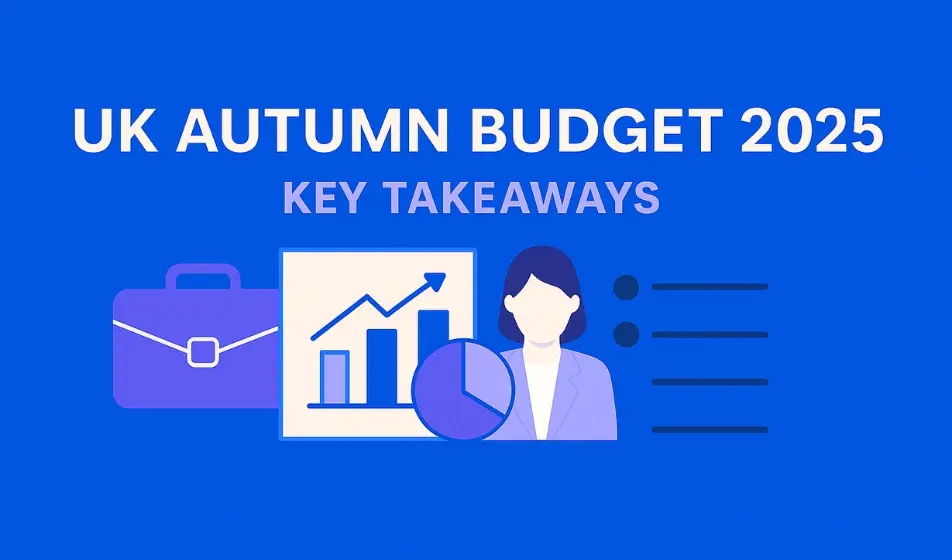1. Changes will be enforced from 2026
“The proposed changes represent the greatest shift in employment legislation in decades. How and when changes are introduced will have to be carefully managed, supported and communicated.
The bill takes forward 28 commitments from the ‘Plan to Make Work Pay’ which will update the legislative framework in relation to employment rights and trade unions. The Government has also set out ‘Next Steps to Make Work Pay’, stating that delivery will be approached in phases.”
- Charlie O'Brien, Head of People, Breathe
This is probably the most important new announcement for HR teams and SMEs.
As recently as last week, many were worried about having to make sweeping changes to their contracts and processes in the next few months. In fact, our recent research discovered that as many as 63% of SMEs agreed that the changes will disproportionately impact the workload of SMEs.
Luckily, it seems we’ll all have a bit more time to prepare than initially expected.
The Government has announced that most of the changes in the Employment Rights Bill won’t come into effect until at least 2026. The new laws will be governed by a new Fair Work Agency, which will also absorb existing enforcement bodies.
2. Nine-month statutory probation period
“The Government will also consult on a new statutory probation period for companies’ new hires.
This will allow for a proper assessment of an employee’s suitability to a role, as well as reassuring employees that they have rights from day one, enabling businesses to take chances on hires, while giving more people confidence to re-enter the job market or change careers, improving their living standards.”
- The Government, via a press release
This is the other significant update from yesterday’s announcement: All workers will have a nine-month statutory probation period.
To understand this, it’s helpful to recap some context. In its manifesto, Labour committed to introducing basic rights from day one, including ‘parental leave, sick pay and protection from unfair dismissal’. Currently, full rights don’t apply until the worker has been employed for two years.
But many businesses have expressed concern about this policy since it would make it harder to legitimately dismiss employees who aren’t performing in their new roles.
Yesterday’s announcement is essentially a compromise. Most workers’ rights will be implemented from day one as planned. But the Government has announced a nine-month probation period where there will be a ‘lighter touch’ approach to dismissal. After nine months, full rights will be applied.
3. Day one rights for paid, paternity and bereavement leave
As we explained in the last section, day one rights will apply for paid paternity leave, bereavement and parental leave from day one.
These changes are largely as we expected. However, there are a number of clarifications worth mentioning:
- Currently, maternity leave rights are already applicable from day one. These changes bring paternity leave in line with maternity.
- Employers will be required to create an established bereavement leave policy and apply benefits from day one.
- A full review of parental leave rights has been promised in the bill and will follow in due course.
4. Universal sick leave entitlement
Currently, employees are only entitled to statutory sick pay from the fourth consecutive day of illness. The Government has now clarified that it will introduce a universal entitlement to sick payments from the first day.
In the same announcement, they also announced they’d be removing the ‘lower earnings limit’ for statutory sick pay. This rule means that anybody paid less than £123 a week (on average) isn’t entitled to sick pay. This will grant sick pay rights to the lowest-paid workers.
5. Zero-hours contracts
Another key pledge from the manifesto: The Government has pledged to abolish zero-hours contracts.
But until recently, there were still questions around how far this ban would go. Now, we have more details to share:
- Workers will have a legal right to request a fixed-hours contract after twelve weeks of employment.
- This will be based on the average number of hours worked over that period.
- Workers will be able to remain on zero-hours contracts if they prefer.
6. Fire & rehire
The Government previously pledged to ban fire and rehire practices, but left some ambiguity around how far the ban would go, as we discussed in our recent explainer.
Now, they’ve confirmed that businesses will still be able to engage in fire and rehire practices, but only when it prevents the business from bankruptcy. In all other circumstances, it will be banned as expected.
Read more: Is it really the end of fire and rehire?
7. Minimum wage
The manifesto also included a pledge to consult on changes to the minimum wage, though the promises were much more ambiguous than the other reforms on this list.
Now, the Government has announced that they will change the remit of the Low Pay Commission so that it can account for cost of living changes. This is the board that advises the Government on changes to the minimum wage.
This will make it easier for the minimum wage to rise in line with inflation. The bill also states that age bands will be removed, meaning younger workers will be entitled to the same rate of pay as older ones.
Time to Breathe
The Employment Rights Bill was a significant, and often controversial, feature of the Labour Manifesto. For many, it’s the most significant change to workers’ rights in decades. But plenty of SMEs, HR teams and businesses worry that the changes would be difficult and costly to implement - making employment harder to justify in the long run.
Whichever side of the divide you’re on, it’s certainly helpful that we’ve got time to absorb the details and prepare.
Rest assured, we’ll have plenty of explainers, templates and how-to guides over the coming months – so you can be ready when the new bill comes into force.
And when the rules become law, Breathe’s HR software will make it much easier for you to be compliant, informed and up-to-date.







